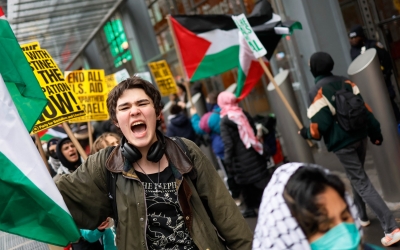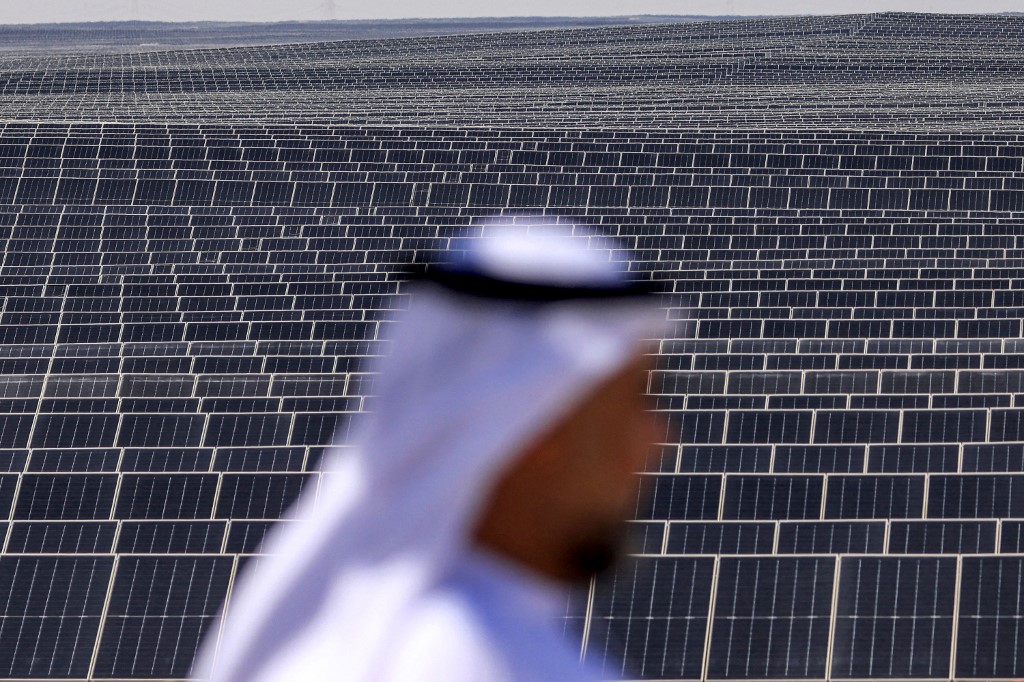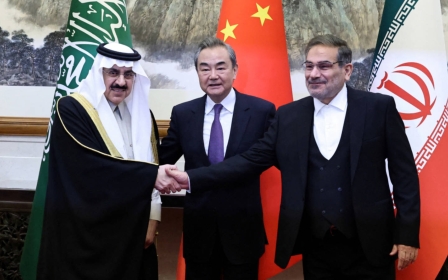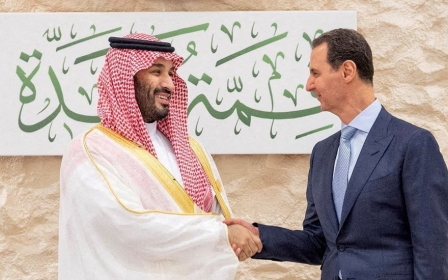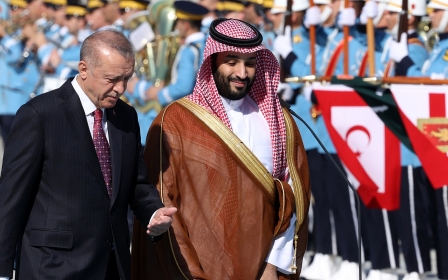The key issues that will define Middle East politics in 2024
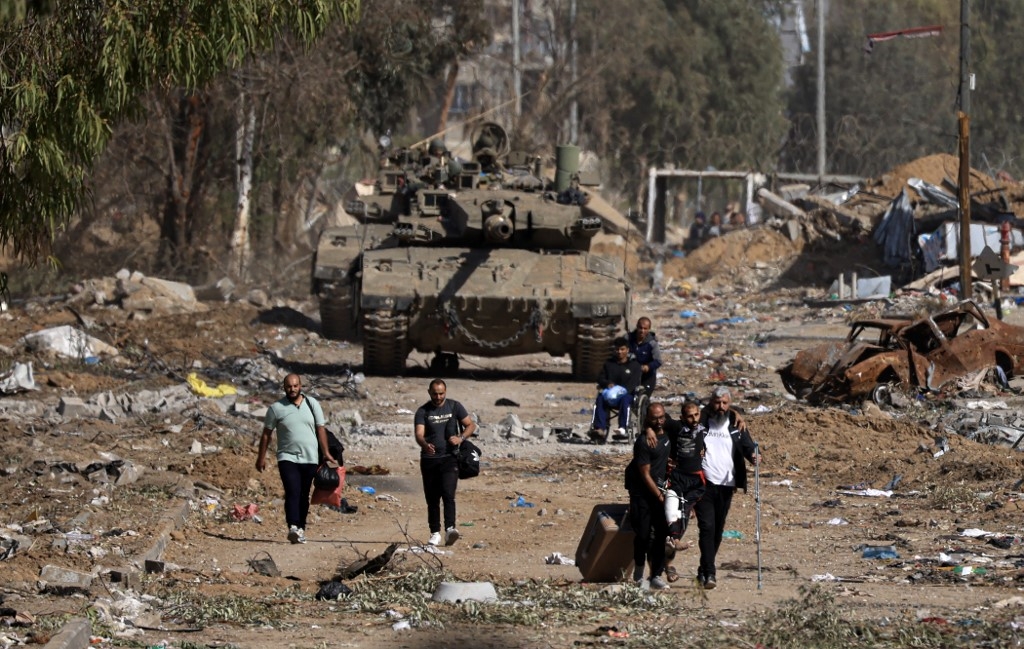
This year has been a turbulent and eventful one for the Middle East, marked by geopolitical shifts, escalating conflicts and tragic disasters.
As we reflect upon the tumultuous events of 2023, it is crucial to consider what next year might hold for the Middle East.
Over the past year, major political developments, in particular the Saudi-Iranian deal and the normalisation of Assad's Syria, seemed to hold the potential to reshape the region, with reduced tensions and openings for resolving protracted conflicts.
Yet 2023 also witnessed conflict escalation, with the outbreak of fighting in Sudan in April and Israel's barbaric campaign in Gaza from October.
Moreover, a series of disasters, natural and man-made, in particular Libya's Derna dam collapse and earthquakes in Turkey, Syria and Morocco, brought huge civilian suffering and a combined death toll of over 53,000.
New MEE newsletter: Jerusalem Dispatch
Sign up to get the latest insights and analysis on Israel-Palestine, alongside Turkey Unpacked and other MEE newsletters
None of these major events were particularly foreseeable, yet they have been defining moments in the region in 2023. Despite the unpredictability of events, certain key trends have emerged, likely to significantly shape the Middle East as we move into 2024.
Gaza will loom large
Firstly, Israel's ongoing campaign of destruction in the Gaza Strip is poised to continue shaping the region's agenda into early 2024. Israel's national security adviser last week indicated that the operation could extend for months, suggesting a protracted, asymmetric conflict likely to further reduce the Strip to rubble.
Even if a long-term ceasefire were to be reached soon, the fundamental issues surrounding Gaza, including security and governance, remain unresolved and will dominate regional discussions.
In particular, the issue of who bears the responsibility of rebuilding Gaza will loom large over policy discussions, as the Arab states and western donors that have previously funded reconstruction following multiple rounds of destruction will inevitably face a major dilemma in whether to do so once more.
The repercussions of this campaign extend beyond immediate geopolitical consequences. As highlighted at the 2023 Doha Forum, Israel's actions, which amount to collective punishment and crimes against humanity, have ignited a wave of anger among the youth across the Middle East and beyond.
This sentiment is not just a fleeting reaction, but rather one that is expected to resonate for years, possibly decades, influencing the socio-political landscape of the region.
Whether in 2024 or in years to come, this demographic and political fault line will eventually contribute to the collapse of peace treaties between Israel and various Arab states, such as Egypt and Jordan, as authoritarian leaders struggle to remain in touch with popular sentiment, which is resolutely anti-normalisation.
Changing geopolitical landscape
Secondly, the United Nations' role in the Middle East, particularly in 2023, has been marked by notable failures, casting doubt on its efficacy in the region. The UN's inability to deliver an effective response to the humanitarian crisis following the earthquake in northwest Syria, and its inaction during Israel's extensive campaign in the Gaza Strip, have highlighted these shortcomings.
These events have not only raised questions about the UN's capacity to manage regional conflicts but also its relevance in the changing geopolitical landscape.
In response to these challenges, 2024 may witness the first tentative steps towards regional cooperation in conflict prevention and post-conflict reconstruction. With global governance mechanisms faltering, Middle Eastern countries are increasingly recognising the need for regionally rooted solutions.
The economic landscape in the Middle East and North Africa region in 2024 is set to be heavily influenced by the adverse spillover effects of the ongoing Gaza crisis
This shift is facilitated by the gradual thawing of regional tensions, allowing for collaborative, regionally coordinated approaches to emerge that draw on cultural familiarity and geographical proximity, thus offering a workable alternative to external interventions.
However, such regional solutions must overcome the challenges of political divergences and historical rivalries, which require new platforms for regular dialogue and cooperation.
Thirdly, the economic landscape in the Middle East and North Africa (Mena) region in 2024 is set to be heavily influenced by the adverse spillover effects of the Gaza crisis.
The International Monetary Fund has already downgraded its 2024 economic outlook for the Mena region, citing significant impacts on trade, investment confidence and tourism. This economic downturn is particularly acute in conflict- and crisis-affected countries such as Yemen, Syria and Sudan, which are not only struggling to resolve ongoing conflicts but are also grappling with rampant inflation and supply-chain disruptions.
These challenges risk further exacerbating the economic divide within the region, with these nations potentially getting left behind in the broader push for economic diversification and stability.
In this context, nations such as Saudi Arabia, Qatar and the United Arab Emirates are making notable strides in shifting away from oil dependency, focusing on sectors such as technology, sports, tourism and renewable energy.
However, the challenge for 2024 will be to navigate these economic headwinds while ensuring that diversification efforts are both inclusive and sustainable. The success of these strategies will be vital in determining the long-term economic resilience and growth of the Mena countries, especially as the global economy increasingly moves towards green energy and digital innovation.
Disaster preparedness
Finally, the imperative to prioritise disaster preparedness in the Middle East is more pressing than ever as we look towards 2024.
The past year has starkly highlighted the region's vulnerability, particularly with the devastating earthquakes in northern Syria, Turkey and Morocco, and the catastrophic floods in Libya.
These disasters have not only caused immense humanitarian and socio-economic harm, but have also laid bare the region's lack of preparedness for such calamities.
The scale of destruction experienced in 2023 serves as a crucial wake-up call. It underscored the need for Arab states to significantly invest in disaster preparedness, including the development of robust infrastructure, enhanced early warning systems and effective emergency response mechanisms.
As the impacts of climate change become more pronounced, the likelihood of such natural hazards increases, making it imperative for the region to adopt comprehensive strategies for disaster mitigation.
While global attention often shifts to geopolitical conflicts, such as the recent escalation in Gaza, the importance of disaster preparedness must not be overshadowed.
The Mena region's capacity to anticipate, respond to, and recover from major disasters is a key determinant of its future resilience and stability.
As we move into 2024, placing disaster preparedness high on the regional agenda is essential, ensuring that the difficult lessons of the past year translate into actionable and sustainable strategies for the future.
The views expressed in this article belong to the author and do not necessarily reflect the editorial policy of Middle East Eye.
This article is available in French on Middle East Eye French edition.
Middle East Eye delivers independent and unrivalled coverage and analysis of the Middle East, North Africa and beyond. To learn more about republishing this content and the associated fees, please fill out this form. More about MEE can be found here.



